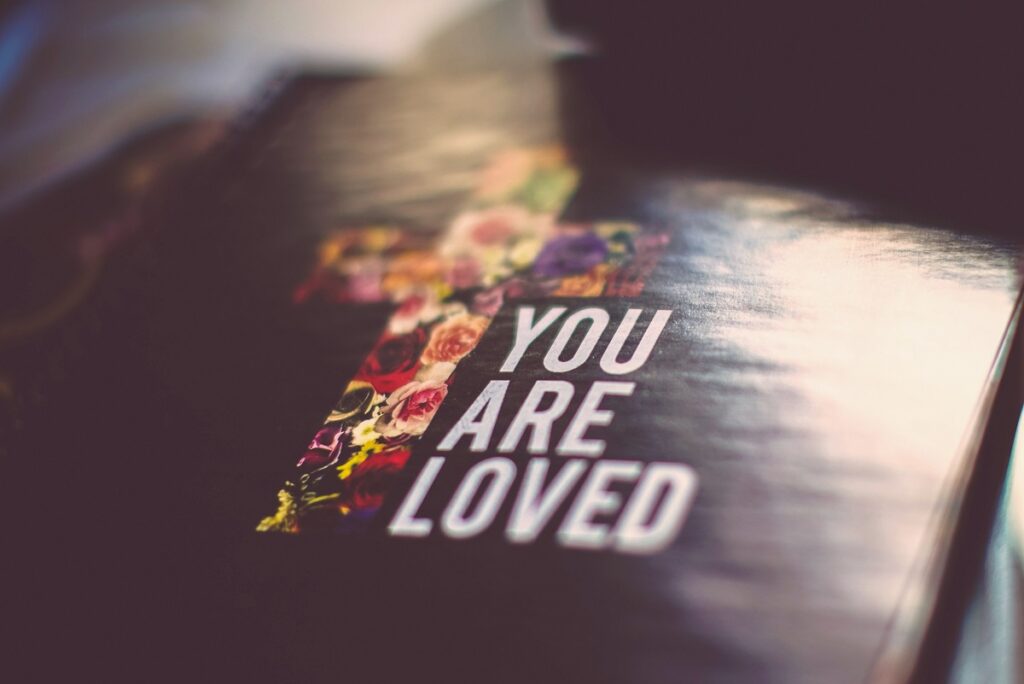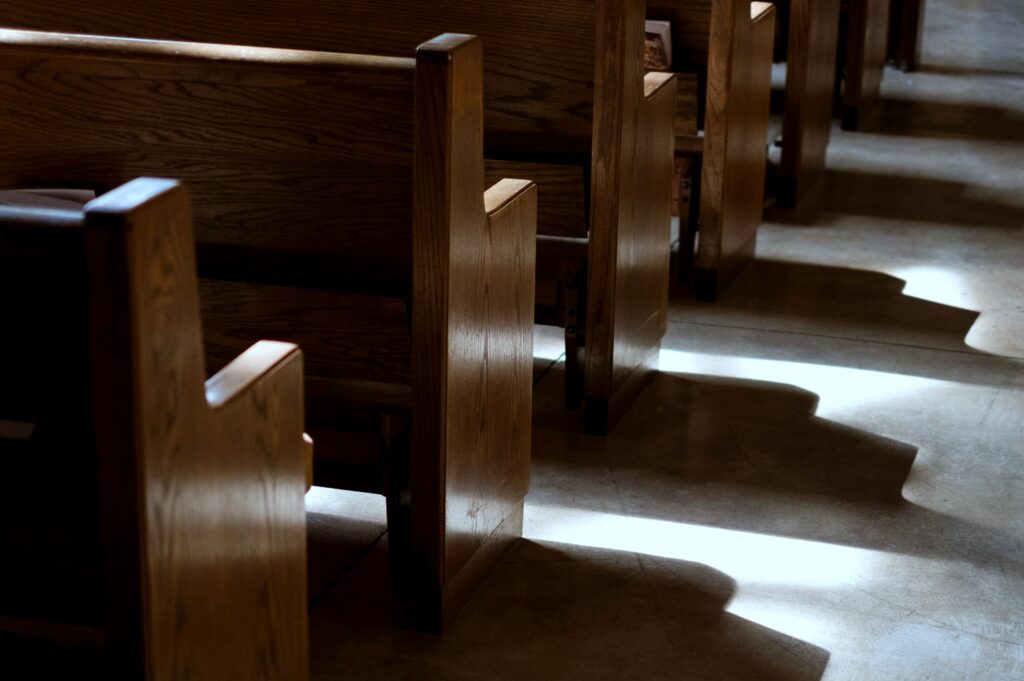 Church is one of those places where I’ve rarely felt I fully belong. For most of my life, I’ve attended conservative, evangelical churches and perhaps that’s part of it. Perhaps not. I’m honestly not sure as it’s the only thing I’ve known. But with conservative thought about Scripture, which I embrace, tends to come conservative thought about fellow humans, which I tend to shy away from, knowing people are much too complex to put into neat little boxes. I’ve never fit into a box anyway. I believe the gospel. I believe the Bible. I believe Christians in a congregation should be united under those things. And how we live out our lives and how we relate to one another from there depends much on who we are. How God has gifted us. Our personalities. Our experiences.
Church is one of those places where I’ve rarely felt I fully belong. For most of my life, I’ve attended conservative, evangelical churches and perhaps that’s part of it. Perhaps not. I’m honestly not sure as it’s the only thing I’ve known. But with conservative thought about Scripture, which I embrace, tends to come conservative thought about fellow humans, which I tend to shy away from, knowing people are much too complex to put into neat little boxes. I’ve never fit into a box anyway. I believe the gospel. I believe the Bible. I believe Christians in a congregation should be united under those things. And how we live out our lives and how we relate to one another from there depends much on who we are. How God has gifted us. Our personalities. Our experiences.
Main Content
Trauma and How the Church Can Be A Healthy Place of Healing (Part 4 – Conclusion)
 Trauma and How the Church Can Be A Healthy Place of Healing (Part 1) and (Part 2) and (Part 3)
Trauma and How the Church Can Be A Healthy Place of Healing (Part 1) and (Part 2) and (Part 3)
Partnership
I am convinced that fear drives most of the wrong decisions we make in life. I’m also convinced that many of us, if not all of us, do not recognize fear in our decision making. We are simply blind to it, even when it’s shining in neon like on a giant billboard, and others could effortlessly point it out in us. In relationships, fear of being alone in the world causes us ignore the red flags and marry a spouse to whom we aren’t well suited or who is an abuser. In parenting, fear of our children getting involved with the “wrong” group of kids or making the same mistakes we made in life causes us to be overprotective, overbearing, and oppressive. In churches, fear of false doctrine and apostasy among our congregation causes us to be narrow minded and closed off to anything that is not explicitly Biblical.
[Read More…] about Trauma and How the Church Can Be A Healthy Place of Healing (Part 4 – Conclusion)
Trauma and How the Church Can Be A Healthy Place of Healing (Part 3)
 This is a continuation of Trauma and How the Church Can Be A Healthy Place of Healing (Part 1) and (Part 2)
This is a continuation of Trauma and How the Church Can Be A Healthy Place of Healing (Part 1) and (Part 2)
Dismissal
Churches can become very closed, protective spaces. Pastors protect their traditions, their doctrine, their theology. Congregants protect their ideal community. Protection can be good thing, especially in a culture that is prone to adopting “new” thoughts on Christ or disregarding scripture altogether as not relevant to the world today. However, the desire to protect or preserve often leads churches to focus inward, only on their church members and their church programs. They neglect to reach out to the community around them and embrace those who desperately need to be brought into a place that shows them love and acceptance, something many have never known. It also leads pastors to unknowingly dismiss their congregants’ feelings or desires to see necessary changes in the church as well. A congregant who is brave enough to approach a pastor and let him know his sermon was insensitive (for whatever reason) or who feels the church could do better in one area or another needs to be heard and loved, even if his claims seem baseless. Because there may be something under the surface he doesn’t even know and certainly cannot express yet, but something that a loving pastor could help him reveal and work through.
[Read More…] about Trauma and How the Church Can Be A Healthy Place of Healing (Part 3)
Trauma and How the Church Can Be A Healthy Place of Healing (Part 2)
 This is a continuation of Trauma and How the Church Can Be A Healthy Place of Healing (Part 1)
This is a continuation of Trauma and How the Church Can Be A Healthy Place of Healing (Part 1)
Absolutes
It’s a curious thing, really. Many people who have experienced childhood trauma find themselves in ultra conservative churches. Fundamentalist or legalistic in nature, even. And yet, it is those churches that tend to be far less equipped to understand or welcome people who have experienced trauma. While most of us choose conservative churches because of the high view they place on the Word of God and the Biblical principles they uphold, I think there is also an element of familiarity in conservative churches that is oddly comforting for survivors of trauma. It is what we know. Yet conservative churches also tend to preach in ways that create absolutes, blacks and white, and leave little room for the many nuances to the Christian life that lie between. [Read More…] about Trauma and How the Church Can Be A Healthy Place of Healing (Part 2)
Trauma and How the Church Can be a Place of Healing (Part 1)
By Brenda 2 Comments
 People who experience trauma often find themselves in situations in which they are abused again. This is especially tragic when we understand that people who experience trauma have a very difficult time trusting anyone, let alone trusting anyone intimately. And trust really is necessary in order to heal.
People who experience trauma often find themselves in situations in which they are abused again. This is especially tragic when we understand that people who experience trauma have a very difficult time trusting anyone, let alone trusting anyone intimately. And trust really is necessary in order to heal.
During the months I dated my husband and in the early years of our marriage, I tried to push him away. I picked fights. I tried to make him leave. I honestly did not know how to let someone love me. I didn’t even believe I could be loved. Not really. Not fully. Not without earning it somehow. I just figured he would abandon me at some point because that’s what men did. I had no healthy picture of what a faithful husband was or what it would be like to live in that reality. I finally told him how afraid I was that he’d leave me and his response was exactly what my wounded heart needed to hear: “I am not your dad.” It’s so simple, but to me it was everything. He could tell me that he loved me, but I didn’t really believe him. He could tell me that he wasn’t going to hurt me, but I didn’t really believe him. Because my dad lied to me all the time. He never kept his promises. He never followed through. But my husband, in saying something so simple, said it all. And that opened a place in my heart that allowed me to trust. He really did love me. Just because I’m me.
[Read More…] about Trauma and How the Church Can be a Place of Healing (Part 1)